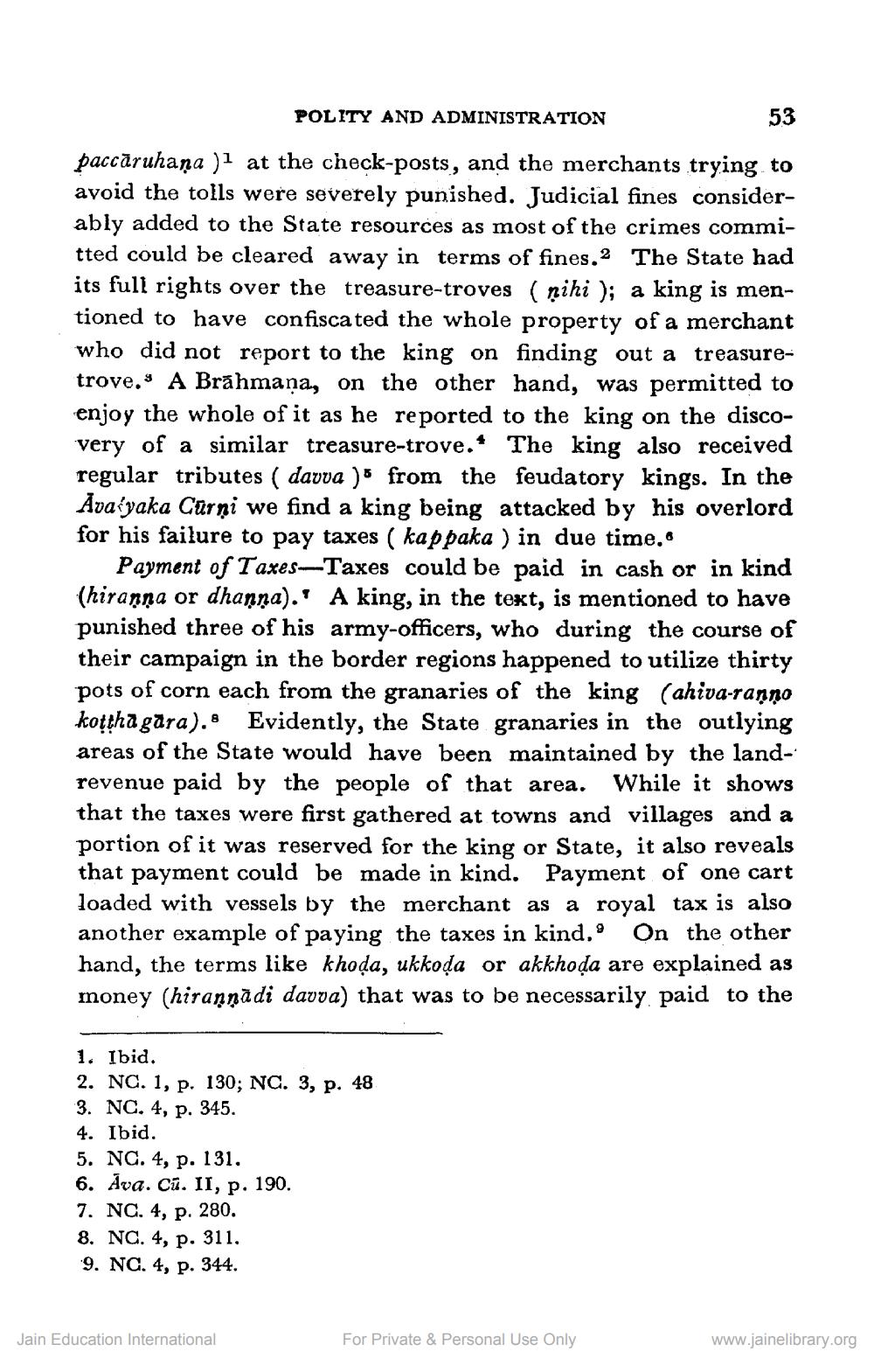________________
POLITY AND ADMINISTRATION
53
paccăruhana )1 at the check-posts, and the merchants trying to avoid the tolls were severely punished. Judicial fines considerably added to the State resources as most of the crimes committed could be cleared away in terms of fines.2 The State had its full rights over the treasure-troves (ņihi ); a king is mentioned to have confiscated the whole property of a merchant who did not report to the king on finding out a treasuretrove.s A Brāhmaṇa, on the other hand, was permitted to enjoy the whole of it as he reported to the king on the discovery of a similar treasure-trove.* The king also received regular tributes ( davva )* from the feudatory kings. In the Avaíyaka Curni we find a king being attacked by his overlord for his failure to pay taxes ( kappaka ) in due time.
Payment of Taxes--Taxes could be paid in cash or in kind (hiranna or dhanna).' A king, in the text, is mentioned to have punished three of his army-officers, who during the course of their campaign in the border regions happened to utilize thirty pots of corn each from the granaries of the king (ahiva-ranno kotthagara). Evidently, the State granaries in the outlying areas of the State would have been maintained by the landrevenue paid by the people of that area. While it shows that the taxes were first gathered at towns and villages and a portion of it was reserved for the king or State, it also reveals that payment could be made in kind. Payment of one cart loaded with vessels by the merchant as a royal tax is also another example of paying the taxes in kind,o On the other hand, the terms like khoda, ukkoda or akkhoļa are explained as money (hiranņādi davva) that was to be necessarily paid to the
1. Ibid. 2. NO. 1, p. 130; NC. 3, p. 48 3. NC. 4, p. 345. 4. Ibid. 5. NO. 4, p. 131. 6. Ava. Cū. II, p. 190. 7. NC. 4, p. 280. 8. NC. 4, p. 311. 9. NC. 4, p. 344.
Jain Education International
For Private & Personal Use Only
www.jainelibrary.org




